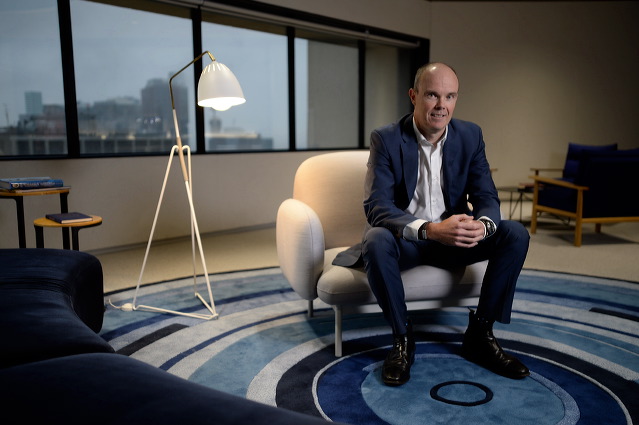Hamish Douglass identifies 3 possible pathways for markets in 2021
The path forward for equity markets has transitioned from being in a state of "Nirvana" at the end of 2020. It has now become complex and dangerous according to Magellan's chairman and CIO Hamish Douglass.
On 5 November, as results in the US election were starting to drop, Douglass expressed his view that markets were entering a "goldilocks" scenario. His position was promptly vindicated, with the S&P posting a stunning 11% return for November, the largest monthly uplift in 47 years. However, it seems the dream scenario for stock markets could be short-lived with Magellan's co-founder recently outlining three divergent scenarios facing markets in 2021 .
"I'd describe 2021 as the year of living dangerously because there's actually a whole series of issues in play at the moment, that really make markets both complex and dangerous. These could lead to some very different outcomes."
Following is a summary of what one of Australia's most-followed investors thinks about current stock valuations, rising bond yields, monetary policy and portfolio positioning.
.jpg)
Image: Hamish Douglass, Chairman and Chief Investment Officer, Magellan Financial Group
On surging stock markets
When asked to give his views on the outlook for markets, Douglass describes 2021 as the year of living dangerously. He outlines three potential scenarios and looks at how the risk of them occurring might or might not be priced into markets.
Scenario #1: The party rages on
The dream scenario is that there is a smooth rollout of the vaccine facilitating a rapid reopening of economies across the globe towards the second half of 2021 and into 2022. This sits against the backdrop of monetary stimulus and fiscal stimulus that is 'off the charts.
"We've got zero interest rates, so if we're reopening economies and we've got this flood of money globally, you can see why markets rallied strongly. And you would actually say this is a world that's pretty constructive for asset prices."
Scenario #2 Someone removes the punch bowl
The second scenario is pretty much the same as the first, but with a sting in the tail. That sting is the potential for inflation to rise, resulting in the withdrawal of stimulus that is currently flooding markets.
"That's not a pretty picture for asset classes, even if in an economic recovery that looks super good, rising interest rates or monetary policy changing course, could be really bad for asset prices."
Scenario #3 Music stops, the party is over
The first two scenarios are predicated on the assumption that there will be a perfectly smooth rollout of vaccines followed by a strong rebound in economic activity. Douglass says there is a 'scientific risk' that there are mutations of the virus, and the rollout is not as smooth, and markets are hoping. He says the team at Magellan are spending a lot of time trying to understand the probability of this scenario eventuating and says the risk is well above 0%.
"There's not a lot of margin for error in markets, either for a change in monetary policy or, I'd argue more worryingly, the virus taking a turn on mutations in scenarios that people aren't even contemplating at the moment."
Central banks and the prisoner's dilemma
Risk appetite has surged based on extraordinary support from central banks globally. Having committed to keeping a lid on rates to support the post-pandemic recovery, they now face a precarious situation of reversing their current policy position should they need to. This process could be costly for markets hence the intense debate on the prospect of rising inflation. Douglass acknowledges that inflation remains one of the great unknowns in the market today and shares many central bankers' view that there will be a rise in inflation associated with reopening economies.
"The central banks are already seeing this event. They're already calling it a transitory event, and I think it is likely to be transitory, but that doesn't mean markets won't move and bond yields won't start moving up materially."
According to Douglass, this spike will quickly pass, and the forces that have kept a lid on inflation for many years will reassert themselves. He anticipates markets will start betting against the central banks by pushing bond yields higher. Douglass, who draws heavily on the counsel of central bank advisers, says the response will see a doubling down on stimulus measures, effectively taking on the market in the inflation debate.
"I think inflation in the near term is probably coming. And that's a very big debate in financial markets at the moment, but if central banks are wrong and they're going to have to reverse course here, hold onto your chairs. That is not a pretty scenario."
Don't put all your eggs in one basket
When it comes to positioning, Douglass breaks the Magellan portfolio into two distinct buckets. One is a 'very defensive' portfolio that holds a small amount of cash along with defensive equities such as consumer staples and utilities. The other bucket is filled with the growth stocks that have been terrific performers in recent years. Douglass says there is a misconception about the rotation away from growth stocks into value stocks, noting that many of the true growth stocks remain at all-time highs. While the defensive stocks have been a drag on Magellan's performance in recent months, he expects them to play an essential role in a 'risk off' scenario.
"I don't think you want to have all your eggs in the one basket just betting on low interest rates and the economic recovery because there are other scenarios."
You can access the full video interview conducted by CommSec's Tom Piotrowski by clicking here.
If you enjoyed this interview please give it a 'like'.
Not a Livewire subscriber?
If you're not an existing Livewire subscriber you can sign up to get free access to investment ideas and strategies from Australia's leading investors.
1 stock mentioned

